Keywords: Foreign Policy
There are more than 200 results, only the first 200 are displayed here.
-

AUSTRALIA
- Binoy Kampmark
- 18 October 2016
2 Comments
The late Professor Desmond Ball of the Australian National University's Strategic and Defence Studies Centre came as close as any on being a public intellectual on nuclear strategy. While some of his counterparts in the US felt that using nuclear weapons was feasible and sound, Ball issued his pieces with mighty caveats. 'Controlling escalation', Ball ventured, 'requires both adversaries to exercise restraint, and current US policy is to offer a ... mixture of self-interest and coercion.'
READ MORE 
-
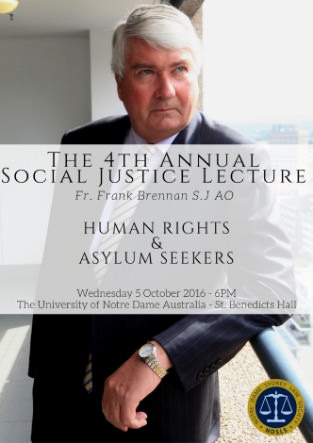
AUSTRALIA
- Frank Brennan
- 06 October 2016
8 Comments
Australia's policy is unique and unrepeatable by other nations because it requires that you be an island nation continent without asylum seekers in direct flight from the countries next door and that you have access to a couple of other neighbouring island nations which are so indigent that they will receive cash payments in exchange for warehousing asylum seekers and proven refugees, perhaps indefinitely. The policy over which Turnbull presides is not world best practice. It's a disgrace.
READ MORE
-
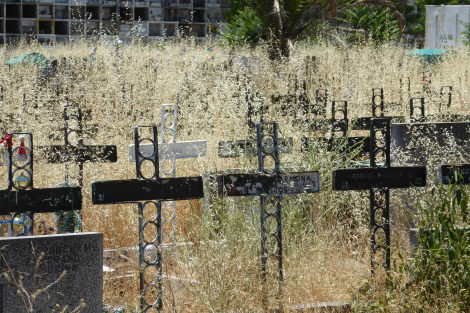
INTERNATIONAL
- Tony Thompson
- 14 September 2016
6 Comments
I don't speak Spanish but I knew I had to try to ask someone. It wasn't an appealing idea. The crowds of people roaming here were the bereaved. They were here to visit their loved ones, not help me tick a box on my tourist adventure. However, I had little choice. I stopped a friendly looking middle aged man. 'Victor Jara,' I said. 'Donde?' He smiled and said a lot of things in Spanish while gesturing in a particular direction. I thanked him and headed the way he had pointed.
READ MORE 
-
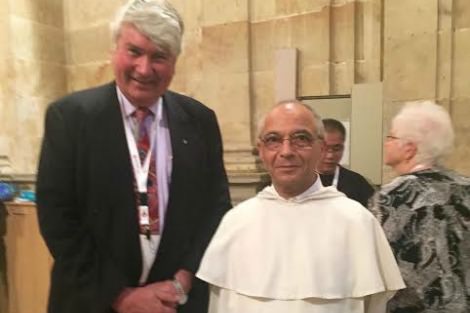
INTERNATIONAL
- Frank Brennan
- 05 September 2016
1 Comment
'I am a Jesuit amongst Dominicans contemplating the Church's view of human rights. I am a human rights practitioner rather than a theologian, aware that human rights discourse is increasingly more universal and secular. Contemplating, preaching and enacting human rights in the 21st Century Church and World, I come asking two questions.' Frank Brennan's keynote presentation in Salamanca Spain to the International Congress of Dominicans in the Promotion and Defence of Human Rights: Past, Present, Future on the occasion of their 800th anniversary.
READ MORE
-
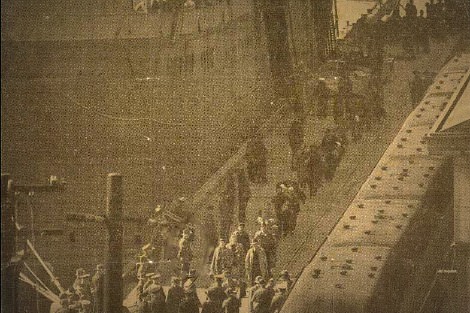
AUSTRALIA
- June Factor
- 03 August 2016
13 Comments
In 1940, Prime Minister Robert Menzies received a letter from a woman in Western Australia: 'I have heard on the wireless the news that Australia would be willing to receive internees from England. I beg to protest; we have enough of the scum here already, too many in fact ... I sincerely trust that a U-boat gets every one of them.' The 'scum' she rejected so emphatically were the German and Austrian refugees, predominantly Jewish, soon to travel to Australia as 'enemy alien' prisoners.
READ MORE 
-
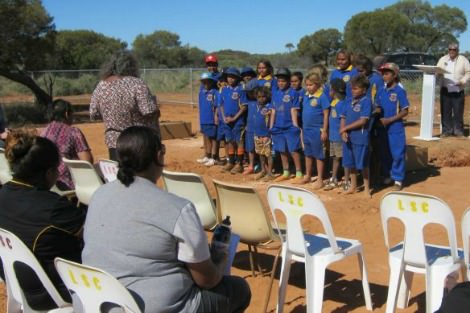
AUSTRALIA
- Kate Galloway
- 17 June 2016
3 Comments
Until the 1940s, bodies of deceased Aboriginal and Torres Strait Islander people were sent to museum, scientific, and private collections around the world. The remains of more than 1000 Aboriginal and Torres Strait Islander Australians continue to be held overseas in collections. Indigenous Australians have worked tirelessly towards repatriation, and there has been some success in recent decades. Unfortunately, the remains tend to fall into a grey area of Australian law.
READ MORE 
-
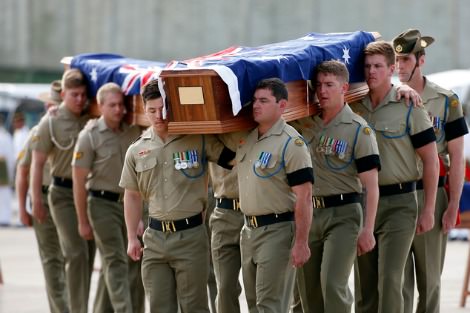
AUSTRALIA
- Binoy Kampmark
- 07 June 2016
5 Comments
Thirty-three bodies returned to Australia last Thursday in the country's largest repatriation of dead servicemen and their dependents, including six children. All of the dead were connected with Australia's involvement in overseas conflicts which have been archived and, in some cases, forgotten altogether. Returning the fallen has been a contentious matter. In some cases, the issue has been politicised, with dead soldiers discarded for being the immoral instruments of disputed foreign policy.
READ MORE 
-

AUSTRALIA
- Frank Brennan
- 30 May 2016
5 Comments
'Being in the middle of an election campaign, I will not be making any partisan party political points. However being here in the bellwether seat of Eden-Monaro, I will conclude with a critique of both major political parties, and with one piece of political advice for citizens of goodwill seeking a national asylum policy more in harmony with the ideals set out by our bishops in their social justice statement.' Yass Catholic Parish Potluck Dinner, 28 May 2016
READ MORE
-
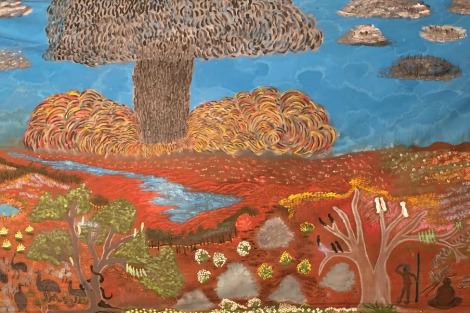
ENVIRONMENT
- Michele Madigan
- 26 May 2016
20 Comments
Just how strictly controlled the process is becomes obvious when it emerges that the task of the 50 member Citizens' Jury will be to produce 'a short independent guide to help every South Australian understand the recommendations raised' by the report. ABC news has dubbed this whole process the Premier's 'public relations exercise', and surely they're not wrong. He is urging all South Australians to remain 'open' about the proposal. But are they, including the Citizens' Jury, allowed to be open to refusal?
READ MORE 
-
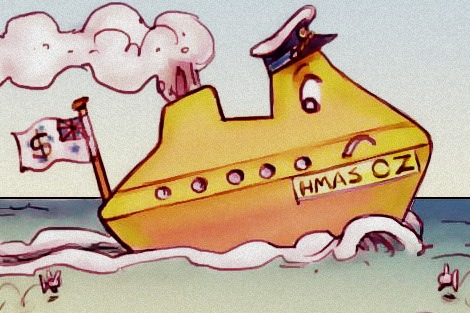
AUSTRALIA
If Australia knows who its enemies are, presumably these putative enemies have a fairly good idea who they are as well. How are they likely to respond to a purchase of submarines? By initiating military countermeasures? By exacting trade sanctions? By diplomatic reprisals? These questions are vital, not just for military planners but also for anyone who is likely to be affected by Australian foreign policy as well as those who want to know more generally how their tax dollars are to be spent.
READ MORE 
-
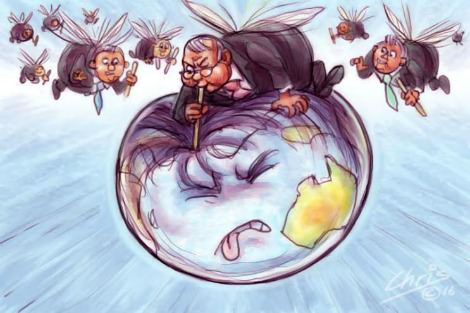
ECONOMICS
- David James
- 18 April 2016
11 Comments
Three finance-related events are currently gaining great attention in the media. One is the so-called Panama Papers. Another is the proposal to have a royal commission into the banks. And a third is the furore over the unaffordability of homes and the debate over negative gearing. On the surface they would seem to be quite separate issues. But all three issues demonstrate yet again that banks are, if not the most malign organisations on the planet, then certainly among the most dangerous.
READ MORE 
-
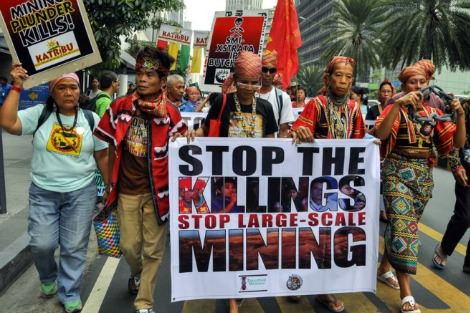
AUSTRALIA
- Fatima Measham
- 07 March 2016
3 Comments
In 2012, a pregnant woman and two of her children were killed in their own home in Tampakan, on the southern Philippine island of Mindanao. Tampakan is the site of a new mine with Australian interests. The woman was the wife of a B'laan tribal leader agitating against the mine. Over recent years indigenous peoples of Mindanao been harassed, displaced and killed by militias, some allegedly with the imprimatur of the Philippine army. Much of this has passed without notice in Australia.
READ MORE 